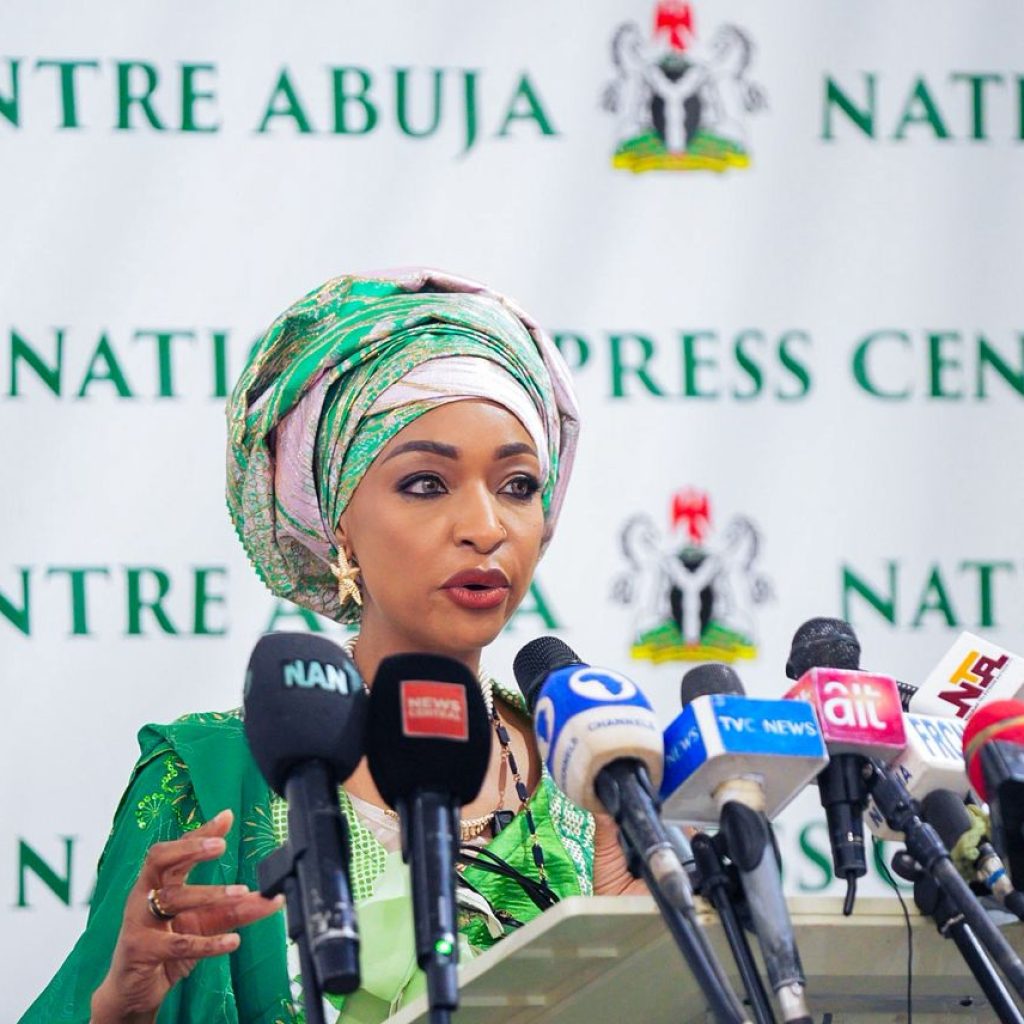
Abuja, Nigeria, May 16, 2025 – In a compelling presentation of transformative strides, the Federal Ministry of Art, Culture, Tourism, and the Creative Economy has unveiled a strong record of achievements positioning Nigeria as a rising global hub for cultural and creative excellence. At the 2025 Ministerial Press Briefing Series held at the National Press Centre, Abuja, The Honourable Minister Hannatu Musa Musawa, Esq., presented a detailed progress report that underscored the Ministry’s strategic reforms, partnerships, and cultural diplomacy efforts.
Barely 18 months into her tenure, The Honourable Minister Hannatu Musa Musawa, Esq., highlighted how the Ministry has evolved into a cornerstone of Nigeria’s sustainable development strategy, leveraging the creative industries to foster inclusive economic growth and national pride.
“With the Renewed Hope Agenda as our guide, we are moving beyond cultural celebration to economic transformation. Art, culture, tourism, and the creative economy are now active contributors to job creation, global recognition, and national prosperity,” she stated.
Reframing Culture as a Strategic Asset
Following the October 2023 merger of the former Ministries of Tourism and of Art, Culture, and the Creative Economy by President Bola Ahmed Tinubu, the consolidated Ministry has focused on maximizing efficiency, reducing cost, and delivering unified policies with broader impact. This alignment is central to Nigeria’s drive to strengthen cultural identity while contributing tangibly to GDP and youth empowerment.
Data-Driven Development: The D30 Initiative
Central to the Ministry’s strategy is the D30 Data Initiative, designed to comprehensively map Nigeria’s creative economy and support data-driven planning. Early outcomes have identified five major value chains within the music industry alone, with job creation potential exceeding 500,000 new roles by 2030. Final validation and publication are expected by June 2025.
Rewriting the Rulebook: Policy Innovation
In collaboration with the Nigerian Economic Summit Group (NESG) and other sector stakeholders, the Ministry is actively modernizing outdated frameworks. Key reforms include:
• The National Policy on Intellectual Property Rights
• Establishment of the Creative Economy Development Fund (CEDF)
• Review of the 1988 Cultural Policy and the 2005 Tourism Policy
• Transitioning the National Film and Video Censors Board (NFVCB) from censorship to content classification
• Introduction of monetization and credit-access policies tailored to the creative ecosystem
These reforms aim to formalize the sector, strengthen legal protections, and create more inclusive financial pathways.
Raising Nigeria’s Global Cultural Profile
With the launch of “Destination 2030: Nigeria Everywhere” at Davos, Nigeria’s global cultural standing has significantly improved, climbing 14 points in soft power rankings in under a year. The country’s participation at prestigious international events such as the Cannes Film Festival and the Venice Biennale, along with new heritage recognitions by UNESCO and ICESCO for festivals like the Sango Festival and Kano Durbar, reflect this momentum.
Unlocking Investment for the Creative Future
The Ministry has successfully secured a $200 million investment from AFREXIM Bank to boost creative sector development. Through the newly launched Creative Economy Development Fund, financing is now accessible via debt, equity, and grants. Strategic partnerships with institutions such as the Ministry of Finance Incorporated (MOFI) and the Federal Inland Revenue Service (FIRS) are ensuring creative assets are not only protected but monetized for national growth.
Creative Infrastructure for a New Generation
A landmark initiative, the Creative and Tourism Infrastructure Corporation (CTICo), has received presidential approval with a ₦100 billion investment plan, projected to create over 2 million jobs. Major infrastructure projects include:
• The Abuja Creative City, developed on 26 hectares in partnership with Creative Park Ltd
• Nationwide renovation of cultural villages and museums
• A Digital Museum Project, delivered in partnership with IHS Nigeria and the National Commission for Museums and Monuments (NCMM)
• Concessionary financing from the French Treasury, now expanded from €35 million to €100 million
Strategic Collaborations and Cultural Diplomacy
The Honourable Minister Hannatu Musa Musawa, Esq., emphasized the importance of multisectoral collaboration. The Ministry’s growing list of partners includes MTN, Chocolate City, WIPO, MOFI, and AFREXIM, alongside bilateral cultural agreements with countries like Brazil, France, and the United Arab Emirates. Traditional institutions and state governments also play critical roles under the Renewed Hope Cultural Project, fostering grassroots ownership.
Sectoral Highlights: Inclusion, Innovation, and Influence
• Film Co-productions with countries such as France and South Africa are expanding Nigeria’s cinematic reach
• Nigeria is preparing to host the 68th United Nations Tourism Commission for Africa (CAF) in June 2025, solidifying its position on the tourism map
• Dedicated empowerment programs for youth and women are creating new avenues for learning, creativity, and entrepreneurship
• Efforts in cultural preservation through intergenerational knowledge transfer and formal education are enriching national identity
Challenges and the Road Ahead
Despite these achievements, The Honourable Minister acknowledged existing challenges such as limited infrastructure at tourism sites, fragmented markets, inadequate distribution channels, and rising global competition. However, she affirmed the Ministry’s unwavering commitment to addressing these through continued innovation, investment, and partnerships.
As the Ministry of Art, Culture, Tourism, and the Creative Economy positions Nigeria as a beacon of creativity, identity, and inclusive prosperity, the evidence is clear: culture is no longer just heritage — it is a driver of the future.
